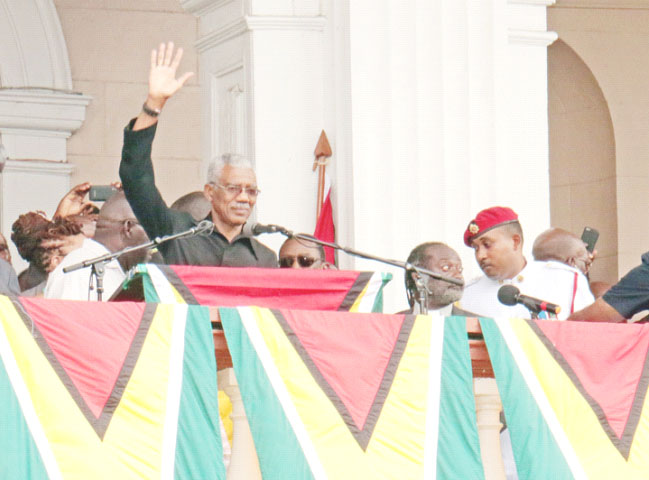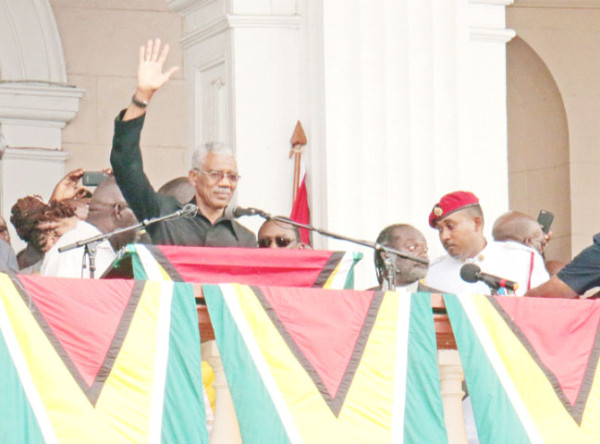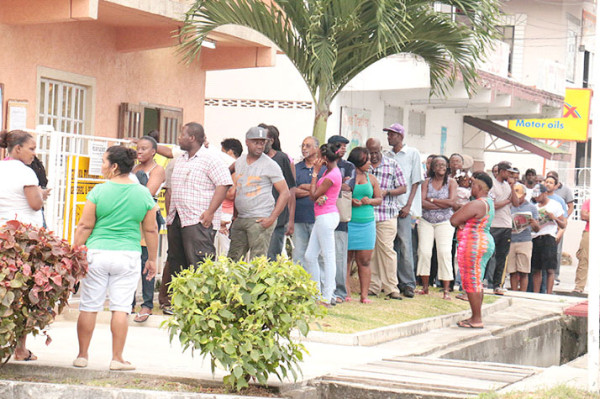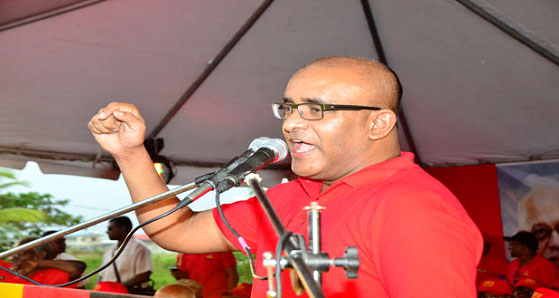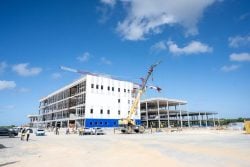Just how long the changed atmosphere in Guyana will last following the May 11 general elections and the removal of the People’s Progressive Party/Civic administration from office after twenty three years. Across much of Guyana there appeared to be a palpable sense of relief over the fact that Guyana had managed to achieve only its second substantive changing of the political guard since independence in 1966.
It would have been surprising if one or another of the two major political groupings that participated in the poll had not cried foul at the end of the process. The difference this time around, the PPP’s subsequent elections petition notwithstanding, was that international observers all certified the poll to be free and fair, though there have since been further calls for electoral reform.
The new political administration brings together political representation from a host of small political parties though elements from the country’s two major political parties, the People’s National Congress and the People’s Progressive Party (PPP) visibly dominate the coalition. A Partnership for National Unity (APNU) the major player in the coalition comprises the PNC and perhaps surprisingly, the Working People’s Alliance (WPA) whose co-founder, Guyanese academic Dr. Walter Rodney died in 1980, allegedly at the hands of the former PNC government, and a few other smaller political groupings.
The country’s new President is retired Guyana Defence Force Commander David Granger while two former PPP stalwarts, Moses Nagamootoo and Khemraj Ramjattan hold the positions of Prime Minister and Vice President and Public Security Minister, respectively. Dr. Rupert Roopnarine is the coalition’s new Education Minister while another former prominent WPA leader, economist Dr. Clive Thomas, has been named as a presidential advisor.
Campaign promises made in the height of efforts at winning votes frequently come back to haunt the victors at the polls and that could well end up being the case with Guyana’s coalition government. With unemployment estimated at above 30 per cent there are no clear indications as to how the government’s job-creation promises will materialise. The problem is that arguably the most visible manifestation of the unemployment crisis is a high crime rate that has shot up further in the weeks following elections… so much so that the government early in July, was forced to unveil an emergency response targeting particularly, violent gun crimes. It is a battle that the government simply must win if it is to find the breathing space to deliver on its campaign promises.
There now appears little doubt that corrupt practices flourished during the tenure of the PPP/C in office and the new administration appears to have settled on a strategy of back-footing its predecessors with incremental disclosures that have to do with allegations of stealing from the state. In most instances, the unearthing of cases of corruption appear to have been turned into a media-driven public theatre, so much so that while few question the need to unearth corrupt practices and punish the perpetrators, what is also beginning to emerge is a get-on-with-it public posture that frowns on the dribs and drabs manner in which revelations on corruption are being placed in the public domain.
The new administration faces other challenges that could impact negatively on the pace of its progress. One of the more notable ones is the overwhelming lack of political experience at the level of its Cabinet. Several Ministers, their presumed substantive competence notwithstanding, are not only lacking in political experience but are also novices in the portfolios to which they are assigned.
In one particular sense the coalition government has been unlucky. Whilst its electoral victory has been attended by news of a major offshore oil find, a pall of gloom has been cast over the disclosure by a claim made by neighboring Venezuela to the area where the oil deposits have been identified. The government, it seems, will be distracted by what could be a protracted bout of international diplomacy designed to respond to Caracas’ new bout of verbal aggression.
The PPP/C, meanwhile, remained brooding, out of the National Assembly, though, a few weeks ago, seemingly prepared at last to take up its formal role as the country’s official opposition. It has too begun to point fingers at the new administration over the sharp upsurge in crime though public response has suggested mostly that it perhaps lacks the moral authority to do so.
It transpires, to few people’s surprise that former president Bharrat Jagdeo has emerged not only as the party’s leader but as its unquestioned powerhouse. The manner in which he ‘led’ the Party in the May general elections campaign may have come in for criticism in some quarters; still, at the end of the day his return to the National Assembly at the head of the PPP and, by contrast, what would appear to be the end of the high-profile political career of former president Donald Ramotar underscores the extent of the former president’s popularity in the PPP.
On the government’s side the economy is a preoccupation in the face of claims by the business community that it has slowed down since elections. The new Minister of Business Dominic Gaskin has challenged this view though official private sector opinion holds that long before the May 11 poll the economy appeared to be faltering. While a certain measure of optimism has derived from a few major investments in the gold mining sector by Canadian and Australian entities that are coming on stream, this is happening at a time when gold prices continue to fall and when, moreover, smaller local investors in the industry continue to complain about a less than level playing field.
The coalition government’s agenda is as broad as it is challenging. Crime, jobs, local government elections, the renewed Venezuela claim, and the economy are clearly at the top of the list, though there are others like rebuilding a broken down urban infrastructure, mending the country’s education system, and – as the President has promised – reaching out to the government’s political opponents. All of this will have to take place against the backdrop of a decidedly inexperienced Cabinet, a less than efficient Public Service, a Police Force faced with myriad limitations and a population waiting to collect on elections promises.
